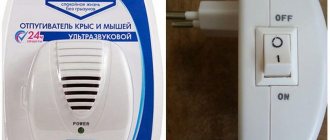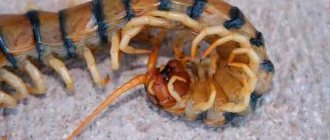02/26/201702/26/2017 Maria Ivanova 2 comments
A peculiar stereotype is the opinion that the appearance of rats is possible only in one’s own home, but not in apartments. However, the urban environment has many attractions for rats. Basements, attics, cluttered hallways, and garbage chutes become excellent homes for them. Accordingly, residents of the first floors suffer from rodent infestations more often than other apartment residents.
The appearance of a rat in an apartment is the last thing any sane person dreams of. And it’s not just that these rodents damage supplies, can damage wiring by cutting wires, and harm pets.
The danger is that rodents are carriers of various dangerous infectious diseases. Neighborhood with such a dangerous guest is unlikely to please anyone.
It is known that within a month a rat is capable of breeding about 20 offspring. This means that you should not hesitate to exterminate the rodent and find out ways to catch the rat.
Before you start exterminating your new neighbor, it’s worth finding out how the animal got into the apartment and sealing the passage. Rats are very cunning and voracious animals. They use any loopholes to get into the house and solve the problem of food.
- 1 Useful tips for rodent control
- 2 Folk remedies for getting rid of rodents
- 3 Ways to exterminate rats in an apartment
- 4 Lethal rodent traps
- 5 Security measures
Precautions before fishing
Rodents spoil food and things and are aggressive towards humans. Their bites or contacts can cause up to 20 types of deadly infectious diseases (Rat bite - why it is dangerous and what to do after the bite, read more in the article here). For safety reasons, before catching it is important:
- Wear construction leather gloves, which will serve as protection against bites.
- Place traps away from children and pets.
- Act quickly and calmly when encountering a live rodent. You can spray your face with deodorant or pesticide.
- Do not touch a live or dead animal without personal protective equipment.
- In case of a bite or scratch, quickly rinse all contact areas on the body with water. If necessary, go to the first aid station.
- Bury the animal in a place inaccessible to other animals.
- When baiting poultry and livestock in outbuildings, do not use toxic chemicals. Prefer mechanical methods of catching: traps, glue, ultrasound.
Reference! Rodents cannot stand the smell of burning. They run away from him. It is effective to carry out fumigation with smoke bombs for baiting. But they pose a potential danger to pets. Curious geese, chickens, and cats can accidentally eat poison and become poisoned. It is important to temporarily isolate pets to prevent contact, move them to another place of residence, or fumigate the premises while they are out on the pasture. During the period of deratization, you can set up a pen on the street, covering it with a chain-link mesh.
Read more about how and why rats attack people in the article here.
Folk repellents
There are many traditional methods of disposal:
- Cats or dogs of hunting breeds (dachshunds, terriers). Even a simple smell can repel rats. It is enough to spread out the hairballs and cat litter.
- Aromatherapy products. Rats cannot stand the smell of mint, eucalyptus, and laurel. It is enough to apply the aroma oil onto cotton pads and place them in the corners. You can use dried leaves and stems of plants.
- Naphthalene? Mix with sawdust and other bulk materials and spread on cardboard around the house.
- Ground black pepper has a negative effect on the respiratory system of rats.
- Onion. Harmful to rats' sense of smell and digestion. Chop the onion and place the pieces around baseboards, basements and attics.
Fans of exotic methods can use feathers from an owl, falcon or eagle. The smell of burnt wool will help repel rodents in non-residential premises.
Advice!
When storing vegetables for winter storage, it is recommended to place bunches of wormwood, which have a strong odor, in the room. You can scatter ash or boric acid throughout the basement. These products irritate the olfactory organs of rodents and force them to leave their home.
How to find a rodent
Rats are inhabitants of basements, garbage chutes, attics, barns, cottages, outbuildings, landfills, storage rooms, garages, and supply cellars. Traps are placed near their expected places of residence.
Rodents often dig holes in garden plots. It is not difficult to identify them in the event of the appearance of passages released after laying with grass and paper. Rats are cunning. Unlikely to appear in illuminated areas. They prefer to bypass them, moving along the walls.
Advice! If you set traps, be sure to go against the direction of movement of the animals. It is important to add bait periodically. If not the second time, then the third time the rat will definitely get caught.
You can find a rodent in a chicken coop (3 best ways to get rid of rats in a chicken coop) or barn by its appearance there:
- droppings in the form of oval brown granules;
- rat paw print;
- teeth marks on food and objects;
- anxiety of animals, birds;
- broken eggs, shells on the floor.
Rats usually breed there and try to live in food storage areas. In winter, in search of food, they can sneak into high-rise apartments through ventilation grilles, cracks in the floors, and sewer pipes. A small hole is enough for rodents to enter. The fact that animals actually live in a residential area will be indicated by:
- excrement (round pellets);
- rustling at night;
- chewed food bags, holes in the floor;
- specific unpleasant odor in the room.
Reference! Rodents love to be in places where there is a lot of trash, old things and people rarely appear. For example, in country houses, garages. Rats are gluttonous. They can use any smallest opening for food.
Reviews of people who managed to solve the problem with rats
Sveta: “I live in a village, so I know the problem with rodents firsthand. Very often these pests started in the barn and spoiled food and grain supplies. The poisons were effective, but these creatures appeared again over time. My husband and I decided to buy a repeller. And strangely enough, the parasites disappeared very quickly and did not appear again. I recommend devices like this.”
Vitaly: “I’ve been using “Rat Death” for a long time and am very pleased. After using the drug, the pests disappear very quickly and do not appear again. The drug is very cheap and you can buy it almost everywhere.”
Oksana: “Rats lived in my barn. As soon as I bought the repeller, the problem disappeared on its own. Although the device has a fairly high price, the result is worth the money spent.”
How to catch without a rat trap
It is not at all necessary to buy dangerous poisons or expensive industrial rat traps. Effective homemade traps will help you quickly and inexpensively catch a rat in a warehouse, barn, garage, office, apartment, or private house:
- Smooth tall plastic bucket. Place tasty bait on the bottom. The rat will be drawn to the pleasant aroma and fall to the bottom without the opportunity to get back out. You can fill a bucket 1/3 with water and place it near the table. Place a piece of plywood or plastic on the table and a bait on the end. The rat will follow the smell and fall into a bucket of water under its own weight.
- Glue. Grease the hard base of the cardboard. Place the bait in the center. This method will allow you to catch several young rats at once.
- Flour and gypsum. Prepare a 1/1 mixture and place a container of water nearby. Rodents will be attracted by the smell of flour, and drinking ordinary water will lead to death.
- A wooden block will help catch rats without a rat trap. Cut a tunnel in the block. Attach a spring with a wire loop above it. Place it in bait close to the entrance to the tunnel. Drill 2 holes at the top and bottom of the tunnel, stretch the thread in the middle. Tie it over the spring, pressing it against the block so that the loop coincides with the passage in the tunnel. The rat will stumble upon the thread in search of food and begin to chew it. The spring will unclench and tighten the noose on the animal’s body, followed by suffocation.
By the way! The best trap is a rat-catcher, the smell of which rodents cannot stand and is unlikely to appear in the house. If there is no cat, then it is recommended to start baiting with homemade mechanical devices in which you put tasty food supplies.
How to catch a live rat
You can catch rats live at home using these effective methods. Let's call them:
- Take a saucepan. Attach a piece of lard or sausage to the middle. Place the container on the floor and turn it upside down. But raise one edge, establishing an unstable support. The edge of the pan should rest against it. The rat will accidentally push the support while approaching the bait, and will cover the pan from above. Even if the animal is extremely careful, the pan will still move when the animal begins to rest its paws on the wall of the container.
- An unstable bridge over an open barrel. A barrel is placed, and a stool next to it. A small plank is placed on it so that it hangs 50% above the neck of the barrel. The bait is placed on the edge of the board. The rat will run to the board for food, tilt it and fall into the barrel. This method is ideal for live catching if you don’t want to kill and there is a cat living in the house. Although we must not forget that the rat is dangerous. It can be painful to bite and even cause infection.
- Barrel. The method will help catch large rats in the barn. Place a metal barrel (capacity 1000 liters) near the wall in the barn. Place the bait. The rat will climb into the barrel, but will not be able to get back out.
- Pipe. Cover one of the holes with a metal mesh. Make a deep cut at the other end. Cut a round door from metal or wood, tying a strong thread to it. Attach the bait to the other end of the thread and place it in the pipe. Place a strong support on it - the door. The animal will run towards the smell into the chimney. The thread will begin to twitch and lower the door. The method is suitable for rats of any size.
- Plastic bottle. Trim the bottom. Bury the neck in the ground. If a rat gets in, it won’t get out because of the high, smooth walls. You can take a 5 liter bottle with a wide neck. Pour sunflower oil into the bottom. Install in a place freely accessible to rodents, for example, against the wall of a room. Cover with boxes or bricks to prevent the bottle from falling.
- The top is an oblong wire cage with a cone-shaped exit. The lower part is a smooth metal bottom. The second entrance is a dead end. If you make it at the level of the cut end of the cone-shaped structure, then the hidden passage will be masked by a metal plate. It will create a counterweight, pressing tightly against the cone. When playing, the animal will fall into the second cone, then to the bottom of the top as the platform descends.
- Zuerner. A box lined on the outside with galvanized iron with two open exits or windows. On the sides of the opposite sides there are fixed wooden bridges on a hinge opposite each hole. At the edges of the windows are the outer ends of the bridge. The inner ends meet each other to form a long bridge. The bait is strung on a hook mounted above the area where the bridges meet. Attached to the box lid. The animal will run across the bridge. It will fall down under the weight. The rat will fall into the lower body of the trap, and the bridge will return to its original position.
Reference! When using a barrel or bucket to catch rats, it is better to pour transformer oil rather than ordinary water. We must not forget that a rat can swim. So he can get out.
Industrial live traps
A typical industrial rat trap is a small cage with a spring-loaded door that opens upward. When opened, the door is secured with a guard, the lower part of which is located inside the cage and has a loop. The bait is hung on a loop.
When the rat gets into the cage and begins to pull the bait, the guard moves, releases the door, and it slams shut.
This principle of operation has proven to be the most effective for live traps, and therefore the vast majority of rat traps work this way.
On a note
Professional rat traps, used by scientists to catch animals in the wild, work on the same principle. The only difference is that professional devices have a folding design and, when disassembled, take up no more space than a compact tablet. This allows you to take several dozen of these traps on scientific expeditions. The most remarkable thing is that catching a wild rat in such a seemingly unusual device is not at all difficult - the animal’s desire to eat the bait turns out to be stronger than the fear of an unknown object.
A cage trap allows you to catch a rat very quickly: sometimes the pest is caught on the very first night after installing the rat trap in the house. To get this result, a rat trap is installed where the pest has previously been seen, or where the animals constantly leave traces of their activity - chewed food, wool, excrement.
It is advisable not to enter the room where the trap is installed, so that the animal gets out of the shelter as soon as possible and becomes interested in the bait.
On a note
An analogue of such a rat trap can be made with your own hands from a plastic bottle, in which the neck is not completely sawed off, turning into a door. This door is lifted, secured with an elastic band and a guard with bait is made. When the rat pulls the bait, the rubber band slams the door shut, trapping the animal in the bottle. The video below shows a corresponding example:
A standard live trap in the form of a cage costs about 400-500 rubles.
Ultrasonic rat traps
Devices for repelling rodents – environmentally friendly, safe:
- will not harm children and pets;
- will not lead to rat addiction, because they will periodically change the frequency and intensity of the waves.
Ultrasound has an irritating effect on rats, leading to disorientation and outright killing within the first hours of operation. When installing repellers indoors, it is important to remove unnecessary objects so that the waves do not break through a brick partition or a bag of potatoes. It is better to place 2-3 devices at a distance of 5 m from each other in an average room (20 m2).
Advice! It is ideal when the decorative device works in an empty room. This is due to the fact that nearby upholstered furniture can absorb waves, and glass or wood can reflect them.
Mustachioed-striped
Since ancient times, the cat has been considered a household talisman. They were entrusted with the function of protecting the home from mice and rats. Cats see rodents as a possible threat to their offspring and actively fight it. Cats are more imposing and lazy, although there are active “fighters” among them. In addition, pets will bring a lot of joy to all inhabitants (of course, if there is no allergy to wool).
To get effective results, it is important to choose the right cat. Yard Murkas are best suited. They have not lost their hunting instincts and are ready to catch prey. If you need help now, you can borrow a rat-catcher animal from your friends. For prevention, you should get a suitable kitten.
Methods for exterminating rats in an apartment
Tenants are able to penetrate even a small gap and chew through cement, brick and lead thanks to their strong incisors. Rats are well camouflaged, so it is not always possible to quickly detect them.
Effective ways to catch a rat in an apartment:
- Plastic bottle (5 l). Pour sunflower oil into the bottom and shake. Place a piece of tasty bait. Place the bottle under the edge of the table. Connect the edge of the bottle and the table with a piece of thick cardboard. The rat will get in, but will not be able to remove the contents from the container due to the oiled walls.
- Glue. Process a piece of cardboard (center). Place a piece of sausage in the middle.
- Flower pot. Turn it upside down and place the ruler edge-on under one of the edges of the neck. At the end of the ruler, place the bait, which will be inside the trap. The rat will get caught when it climbs up. It will not be able to walk, because the substrate will lose its balance.
Traditional methods of getting rid of pests if there is no opportunity or time to make a mousetrap:
- Formalin, the smell of which repels rodents. Spray the floors in the basement, barn.
- Wood ash. It contains alkali, which will corrode internal organs if it enters the animal’s stomach; just scatter it on the floor.
- Mint or bay leaf. Place branches in the corners of the room, along the walls.
- Ground pepper. Scatter near rodent nests. Pepper will clog their nose and prevent them from breathing.
Reference! Sticky traps are the most effective and safe. It is enough to treat the surface of thick cardboard with glue (Clean House) and place the bait in the center. The animal will stick tightly to the trap if it gets caught. Also, to completely get rid of rodents in an apartment, it is recommended to combine various and acceptable methods.
Purchased traps
There are many types of rat traps you can buy in stores or at the market. The price for them varies from several tens to several thousand rubles. Typically, purchased devices are equipped with detailed instructions for use, as well as a description of safety rules when working with them. Common types of traps include:
- Spring rat traps. Primitive, but quite effective traps, working due to a mechanism with a spring. In stores you can find both the simplest versions of such traps and advanced ones - for example, equipped with spikes for instant killing. It is worth noting that classic mousetraps are not suitable for catching rats, since these rodents have different sizes and strengths. The price of mechanical kapok ranges from 30 to 3,500 rubles, depending on their complexity.
- Electrical devices. The principle of operation is similar to spring ones, but instead of mechanical action, an electric current is used to kill the rodent. They can work both from the mains and from a battery or batteries. They cost on average from 3 to 3.5 thousand rubles.
- Sticky traps. They are a surface lubricated with an adhesive substance. Once on it, the rodent can no longer leave and eventually dies from hunger and thirst. The disadvantage of such a trap is that the caught rat remains alive for a long time - it squeals, twitches and tries to get out. This can make some people very uncomfortable. In addition, domestic cats or dogs can get dirty with glue. A sticky rat trap costs about 200-300 rubles.
- Houses and cages. A variety of container devices that close when a rodent gets into them. There are both fatal and harmless to the health of rats. They are most often made of plastic or metal. The cost depends on the material and complexity of the design - it varies from 200 to 1000 or more rubles.
Purchased rat traps allow you to catch a rodent without extra effort and time. They are safe for human health and easy to use.
Making bait
Rats are omnivores and it is not true that they exclusively prefer cheese. If it is not available, then almost any food of animal origin will attract it. First of all, they eat aromatic, nutritious food, but in case of hunger they rush to anything in sight. Even poisoned grain.
Chopped meat
Grind a piece of fresh meat in a meat grinder. Roll into a small ball so that the rat can easily bite off the edge.
Sausage without spices
Natural sausage with flavor is an excellent delicacy. You can't go wrong though. If the quality of the product is low, then the rat will not go. She has a good sense of smell, so she prefers expensive smoked varieties with additives.
Salo
Fried, smoked lard with a layer of meat is the best bait. Although you can try putting a piece of fresh product in the mousetrap.
Egg
Boil a hard-boiled egg. Combine with chemical poison, roll into small balls. Place in suspected animal habitats.
Fish pieces
Cut the fillet of any fish, moisten it with beer or vodka to enhance the specific smell. Can be greased with vegetable oil. It is unlikely that a rodent can resist the aroma. Fish can also be placed in traps and mixed with poisoned grain.
In this case, the bait must be fresh. Animals are not attracted to spoiled foods or food waste.
The note! Rats have a huge sense of taste. They are clean. They will probably dive into corners, look for fresher products and prefer a clear path. The scented bait must be exclusively natural.
Sweet fruits
The animals are not averse to eating sweets. You can put fresh or slightly spoiled aromatic fruit in the trap.
Reference! Rodents love to chew. It is better to use bait in granules. They are attractive, do not get wet in water and do not crumble. Soft dough-type briquettes wrapped in edible paper are a good way to attract rats.
Fishing principles
- Rats get used to one familiar bait. This means that it should not be kept in a rat trap for more than 3 days in a row. It is better to replace it with a new bait more often in order to lure it out and not cause alertness or suspicion in the rat.
- Despite the fact that the animals are omnivores, they still like to give preference to their favorite foods, rushing into the trap.
- If mechanical traps are used, it is important to place them near the walls and block access to them for children and pets.
- It is worth keeping rat traps clean at all times. Handle them only with gloves.
- Regularly remove food products from the kitchen, leaving no food sources other than a mousetrap.
- Store cereals in glass or metal jars.
Tips and tricks
In order to avoid finding them again after a short period of time after catching rats and mice, it is important to take into account certain rules:
- Place traps in the right places exclusively against the movement of rats, also under furniture, chests of drawers, cabinets, sofas.
- Wash traps thoroughly after use.
- Use repellers when living in private houses. Ultrasound works well in an office, private home, or garage.
- Proceed carefully and quietly. If the rat suspects danger, it may bypass the device or not come out of the shelter.
- Maintain order in the room, do not leave food crumbs on the table. This way, rats will not appear in the apartment, because they simply will have nothing to eat.
- Place food in the refrigerator and grains in glass containers on time. In warehouses where pets live nearby, rats can drag the bait into their crawl space, spreading the poison through dangerous fumes.
- Do not touch lures and latches after installation with bare hands. Rats can smell human scent.
Attention! Rodents are caught only with effective baits. Black individuals prefer peanut butter, while brown individuals prefer spoiled cheese. If you encounter a rat, you should remain calm. It’s better to immediately spray with deodorant and hairspray. For prevention, it is better to initially keep the garden area clean and maintain order in the room. Then omnivorous animals (rats, mice, rabbits) will simply have nothing to eat.
The most effective ways to get rid of rats forever
Where to set the trap
The rules for placing rat traps are extremely simple. On the one hand, this should be a place where a rat is likely to appear - a closet with food supplies, a pantry or a barn. In an apartment, these could be hard-to-reach places behind furniture, nooks behind the kitchen stove, or under the bathtub and sink. On the other hand, we must not forget about safety, because a rodent trap poses a real threat to pets and small children.
The difference between a rat trap and a mousetrap
The main difference between these two devices is the dimensions. The rat is much larger than the mouse, some individuals reaching 35–40 cm in length. Therefore, a trap made from a 2-liter bottle, effective for mice, will be absolutely useless in the case of rats that freely jump out even from a standard bucket.
Security measures
When the trap is triggered and you have to remove a rodent from it, you must take all necessary safety precautions. Rats can be very aggressive and may well attack humans. Therefore, get to work by first putting on thick clothing made of thick material, and put on protective gloves on your hands.
Under no circumstances should you touch even a dead rat with your bare hands - the animal can be the source of numerous infectious or parasitic diseases.











